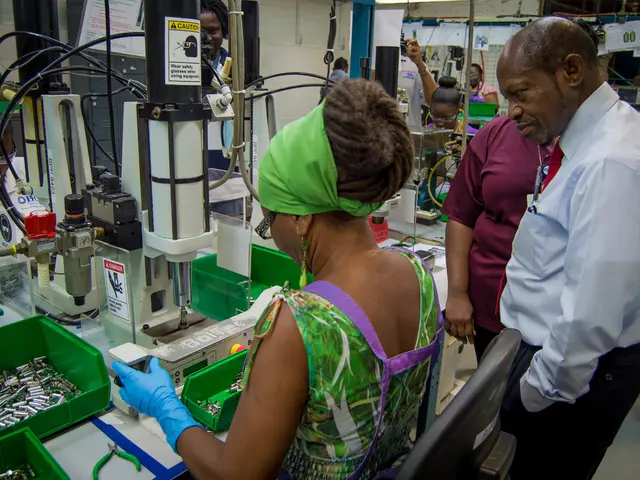China's economic bond with Pakistan expands as new projects are launched under the CPEC 2.0 initiative, marking a significant step in the ongoing collaboration.
The China-Pakistan Economic Corridor (CPEC) is undergoing an expansion, broadening its geographic scope and strategic importance. This development comes amidst regional realignments, with China positioning itself as the dominant economic power in South Asia.
The CPEC, initially established in 2015, aims to connect China's Xinjiang province with Pakistan's Gwadar Port through a network of highways, railways, and energy projects. The latest phase of the CPEC targets transforming Pakistan into a regional export hub.
China's Foreign Minister, Wang Yi, has emphasized the urgency of accelerating progress towards CPEC 2.0. He has also highlighted the need for improved counterterrorism cooperation to protect Chinese nationals working on development projects, as security remains a critical concern.
The expansion of the CPEC includes the inclusion of Afghanistan, providing the landlocked country with access to international markets through Gwadar Port. This move demonstrates China's ability to engage with diverse political systems, as evidenced by the trilateral framework addressing the CPEC expansion.
India, however, has expressed concerns about the CPEC expansion, viewing it as a violation of territorial sovereignty and a strategic encirclement attempt. Tensions between China and India have escalated due to the CPEC's expansion into territories that India claims as sovereign.
Pakistan, on the other hand, aims to capture $30-50 billion of China's annual $2 trillion import market. China's investment in the CPEC has made it Pakistan's largest foreign investor and most reliable economic partner. The Special Economic Zones development aims to relocate Chinese factories to Pakistan, creating an estimated 2.3 million jobs.
Moreover, China's investment in the CPEC has facilitated the development of Pakistan's agricultural, industrial, and mining sectors. The CPEC 2.0 will focus on these three major areas, further enhancing Pakistan's economic growth.
However, Pakistan's economic dependence on Chinese investment has grown substantially, raising questions about long-term sovereignty and decision-making autonomy. The success of the expanded CPEC will depend on effective project implementation, security management, and regional acceptance of China's growing economic presence.
Furthermore, Pakistan projects that artificial intelligence integration alone could add $88 billion to its economy by 2030. This shows the potential for technological advancements to drive Pakistan's economic growth in the future.
In conclusion, the expansion of the CPEC is a significant move that will shape the economic landscape of South Asia. It positions China as the dominant economic force in the region, creating new realities for regional powers and international stakeholders. As the CPEC continues to grow, it will be interesting to see how it impacts the region's political and economic dynamics.
Read also:
- Gigantic Electric Vehicle Manufacturer, Rivian, Launches Construction of $5 Billion Factory in Georgia
- Realty company Prastha receives RERA approval, sets pace with swift sales of high-end plots, raising the bar in the industry
- Capital receives investment offers worth 100 billion tenge from private entities
- Redesigning's difficulties beyond restoration: continuation in Part 2








